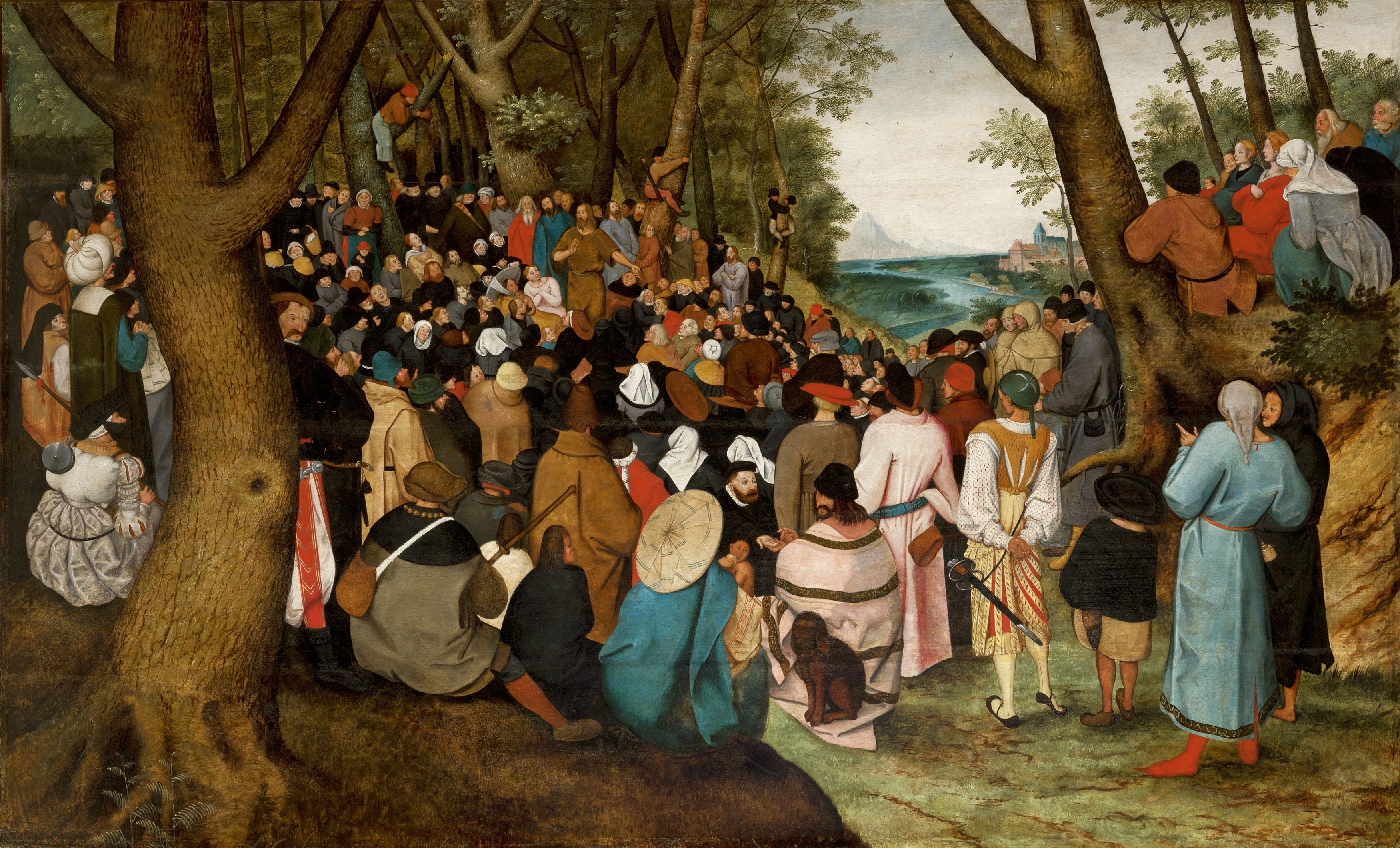John Rebukes the Crowds
Luke 3:7-14
7 He said therefore to the crowds that came out to be baptized by him, “You brood of vipers! Who warned you to flee from the wrath to come? 8 Bear fruits in keeping with repentance. And do not begin to say to yourselves, ‘We have Abraham as our father.’ For I tell you, God is able from these stones to raise up children for Abraham. 9 Even now the axe is laid to the root of the trees. Every tree therefore that does not bear good fruit is cut down and thrown into the fire.”
10 And the crowds asked him, “What then shall we do?” 11 And he answered them, “Whoever has two tunics is to share with him who has none, and whoever has food is to do likewise.” 12 Tax collectors also came to be baptized and said to him, “Teacher, what shall we do?” 13 And he said to them, “Collect no more than you are authorized to do.” 14 Soldiers also asked him, “And we, what shall we do?” And he said to them, “Do not extort money from anyone by threats or by false accusation, and be content with your wages.”
Observations & Reflections

“For I tell you, God is able from these stones to raise up children for Abraham. 9 Even now the axe is laid to the root of the trees. Every tree therefore that does not bear good fruit is cut down and thrown into the fire.” (Luke 3:8-9)
John the Baptist was just as fiery and on-point as the prophet he is described to be like, Elijah. He was not afraid to call the wayward Israelites to repentance. However, there is a larger issue here which can be overlooked. John isn’t just calling them to repentance. He is speaking about the other major “R” word; REPLACEMENT.
Replacement theology (supersessionism) teaches that the Christian church replaced Israel as God’s children. It is passages like the one above which are used to support this belief. As we continue on in the book of Luke more examples of thus type of speech will emerge. The question for the reader is whether or not “the axe” ended up cutting the root or being removed (using John’s metaphor). Paul seems to believe that rather than Israel being replaced, they had the Christian church get joined as a plant is grafted (Romans 11:11-31).
But with replacement theology aside, we absolutely must remember that God expects us to produce good fruit.
And the crowds asked him, “What then shall we do?”(Luke 3:10)
John’s answer to such a simple question is remarkably similar to what we would expect from Jesus’ own teaching. How does one produce fruit that is pleasing to God and aligns with the word of God?
And he answered them, “Whoever has two tunics is to share with him who has none, and whoever has food is to do likewise.” (Luke 3:11)
The answer is simple; treat all people with dignity, empathy, and love. When Jesus returns he will be expecting that His followers had obeyed the words of John.
“Then the King will say to those on his right, ‘Come, you who are blessed by my Father; take your inheritance, the kingdom prepared for you since the creation of the world. 35 For I was hungry and you gave me something to eat, I was thirsty and you gave me something to drink, I was a stranger and you invited me in, 36 I needed clothes and you clothed me, I was sick and you looked after me, I was in prison and you came to visit me.’ (Matthew 25:34-36)
 The crowd upon hearing John’s preaching had come to be baptized. However, in order to make that profession of faith, they had to confess that they are sinners and in need of God’s forgiveness. Baptism meant that you were ready to profess your faith in Christ to the rest of the world. John had to address their sin head on in order to make them understand that their sin would lead to eternal punishment and they could experience a new meaning of hope found only in Christ.
The crowd upon hearing John’s preaching had come to be baptized. However, in order to make that profession of faith, they had to confess that they are sinners and in need of God’s forgiveness. Baptism meant that you were ready to profess your faith in Christ to the rest of the world. John had to address their sin head on in order to make them understand that their sin would lead to eternal punishment and they could experience a new meaning of hope found only in Christ.
He also addresses their questions in what they have to do in order to show that they love Jesus Christ. He tells them specifically what they each ought to do with the position of life they are in. They are called to a higher calling and ought to live differently from the rest of the world. Their roles that they played in their everyday professional lives must ultimately represent Christ living in their hearts.
John also debunks their notion to believe just because they were descendants of Abraham, does not mean they are in anyway saved or have favor with God. They need to acquire Salvation on their own and recognize the sin in their each of their individual hearts. The truth of the Gospel is that we cannot be saved through our own means. It is by recognizing that our sin is what causes us to feel hopeless, lost and weary and only through Jesus Christ alone can we be saved and again eternal life.
[Featured image titled “The Preaching of St John the Baptist”, by Pieter Brueghel the Younger]
